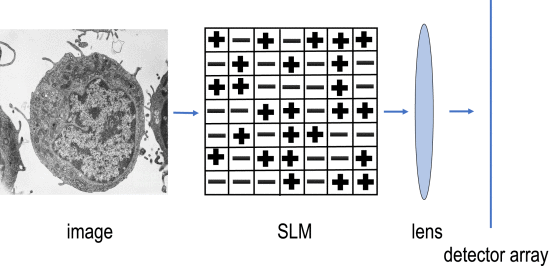
Blind Deconvolution Using Modulated Inputs
This paper considers the blind deconvolution of multiple modulated signals/filters, and an arbitrary filter/signal. Multiple inputs s_1 , s_2 , … ,s_N =: [s_n] are modulated (pointwise multiplied) with random sign sequences r_1 , r_2 , … ,r_N =: [r_n], respectively, and the resultant inputs (s_n odot r_n ) in mathbb{C}^Q , n in [N] are convolved against an arbitrary input h in mathbb{C}^M to yield the measurements y_n = (s_n odot r_n ) circledast h, n in [N] := 1, 2, … ,N, where odot and circledast denote pointwise multiplication, and circular convolution. Given [y_n], we want to recover the unknowns [s_n] and h. We make a structural assumption that unknowns [s_n] are members of a known K-dimensional (not necessarily random) subspace, and prove that the unknowns can be recovered from sufficiently many observations using a regularized gradient descent algorithm whenever the modulated inputs s_n odot r_n are long enough, i.e, Q geq KN + M (to within logarithmic factors, and signal dispersion/coherence parameters). Under the bilinear model, this is the first result on multichannel (N geq 1) blind deconvolution with provable recovery guarantees under near optimal (in the N = 1 case) sample complexity estimates, and comparatively lenient structural assumptions on the convolved inputs. A neat conclusion of this result is that modulation of a bandlimited signal protects it against an unknown convolutive distortion. We discuss the applications of this result in passive imaging, wireless communication in unknown environment, and image deblurring. A thorough numerical investigation of the theoretical results is also presented using phase transitions, image deblurring experiments, and noise stability plots.




